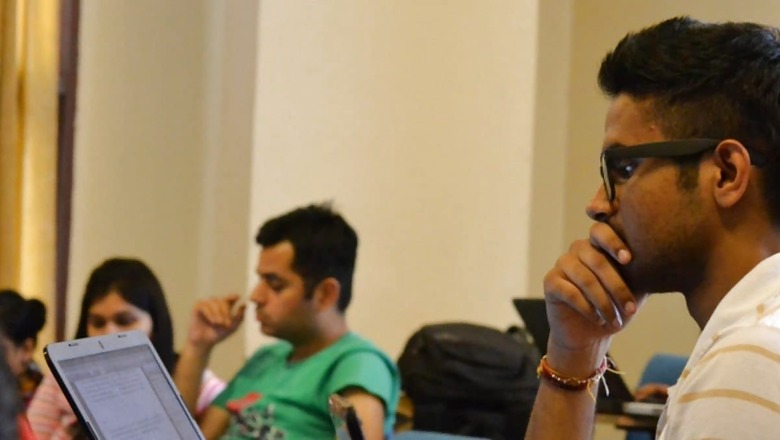
views
A lot has happened in the previous week, with women’s self-help groups receiving a Rs 8 lakh subsidy as India strives to become the third-largest economy by FY31. It is suggested that you keep up with current events, especially if you are preparing for any recruiting exam such as UPSC or SSC. Current events are one of the most essential topics on many job and admission assessments. Hence, we have compiled a list of the week’s most important news items to help you study for your upcoming exams.
Women SHGs To Receive Rs 8 lakh Subsidy:
The central government’s new Drone Didi plan would provide drones to approximately 3,000 women self-help groups (SHGs) across multiple states, with women organisations receiving a subsidy of Rs 8 lakh. To profit from this initiative, SHGs must complete all essential documentation. The scheme would provide drones to 14,500 SHGs across the country. The last three months of this year will see the distribution of 3,000 drones. The states will receive instructions on this by the end of this month, after which the procedure will begin. According to the selection criterion, the SHGs in Uttar Pradesh will receive the most drones, followed by Maharashtra and Karnataka. The criteria for selecting states under this system have been established based on the highest cultivable land, active SHGs, and high use of nano fertilisers.
India Achieves Top Rating from FATF For Anti-Money Laundering Efforts
The Financial Action Task Force (FATF) has placed India in the “Regular Follow-up” category, highlighting its high degree of technical compliance with global standards. This marks a significant boost to India’s efforts to combat financial crime. On September 19, the FATF, an intergovernmental group that sets standards for anti-money laundering (AML) and counter-terrorist financing (CFT), issued its mutual evaluation report on India. The study highlights India’s tremendous progress in implementing measures to combat illicit money. India now joins an elite group of only four G20 countries that have achieved this distinction, showcasing its leadership in tackling financial crime.
Elon Musk’s Neuralink Receives FDA’s Breakthrough ‘Device Tag’
On September 17, Tesla CEO Elon Musk revealed that Neuralink, his brain-chip startup company, has won FDA approval for its experimental implant technology aimed at “restoring vision”. Blindsight is an experimental gadget that will allow those who have lost both eyes and their optic nerve to see again. Neuralink, founded in 2016 by Musk and a group of engineers, is developing a brain chip interface that can be implanted within the skull, claiming that it will someday allow crippled patients to move and communicate again, as well as restore vision. Neuralink’s technology contains a chip that processes and sends neural impulses, which can then be sent to devices such as computers and phones.
India’s First 250 Kmph Bullet Train
Bengaluru is preparing to manufacture the country’s first bullet train. On September 5, the Integral Coach Factory (ICF) issued a tender for the building of two chair-car high-speed trains. The deadline for submitting proposals was September 19. The stainless steel car body trains will have a maximum speed of 280 km/h and an operating speed of 250 km/h. The train is likely to be built at BEML’s Bengaluru plant. The tender has yet to be approved by the ICF. According to reports, the train would be manufactured at BEML’s Bengaluru plant. The train will feature seven bogies with a regular 3+2 seating configuration and one executive bogie with 2+2 capacity. The total seating capacity is projected to be approximately 174, reports add.
India To Become Third-largest Economy By FY31:
S&P Global said in research recently that India is on course to become the world’s third-largest economy by 2030-31, with a forecast annual growth rate of 6.7 per cent this fiscal year. The research also stated that with an 8.2 per cent growth rate in FY2024, further reforms are critical to enhancing business transactions and logistics, increasing private-sector investment, and lowering reliance on public resources. It stated that equities markets are expected to remain vibrant and competitive as a result of high development prospects and improved regulation, and foreign inflows into Indian government bonds have increased since the country joined key developing market indexes, with additional expansion forecast.




















Comments
0 comment